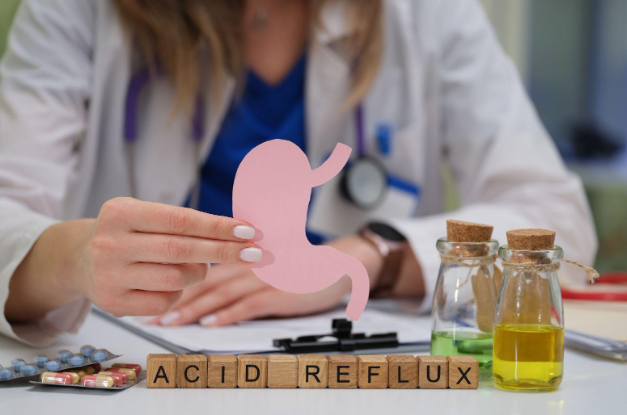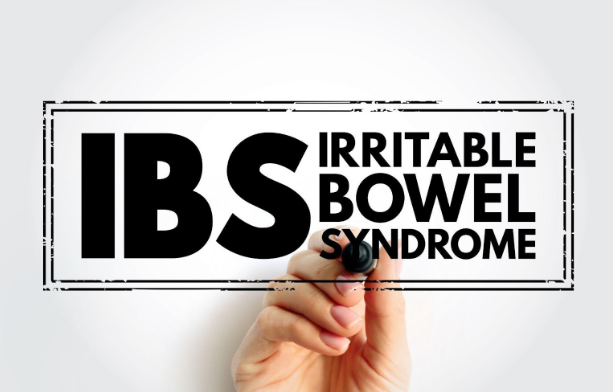What is Viral Gastroenteritis AKA the Stomach Flu?

Viral gastroenteritis, commonly referred to as the stomach or intestinal flu, is an infection of the digestive tract caused by a virus. Symptoms of such an infection typically include abdominal pain, vomiting, diarrhea, nausea, and a fever.
The virus is usually spread through contact with feces or contaminated food or surfaces.
Treatment for the stomach flu typically involves supportive measures like eating bland foods, drinking clear fluids, and taking over-the-counter medications to reduce fever and pain. In some cases, antibiotics may be necessary to treat a secondary bacterial infection.
Causes
The causes of stomach flu vary depending on the specific virus. Some common strains include norovirus, rotavirus, adenovirus, astrovirus, and sapovirus.
Noroviruses (NoV) are the most common cause of viral gastroenteritis, annually causing an estimated 685 million cases. As per the Center for Disease Control and Prevention, about 200 million cases are seen among children under 5 years old, leading to an estimated 50,000 child deaths every year, mostly in developing countries. However, norovirus illness is a problem in both low- and high-income countries. Every year, norovirus is estimated to cost $60 billion worldwide due to healthcare costs and lost productivity.
Rotavirus is another major cause of stomach flu, especially in young children. It is highly contagious, often leading to epidemics of diarrhea. Rotavirus kills about 200,000 children each year, especially old in low and middle-income countries.
Adenoviruses, astroviruses, and sapoviruses are other viruses that can cause gastroenteritis, though usually in milder forms than Norovirus and Rotavirus infections.
Unfortunately, there is currently no vaccine or specific antiviral therapy available to treat viral gastroenteritis.
Therefore, prevention is critical. This includes handwashing, especially after using the bathroom and before eating, avoiding contact with infected individuals, cleaning and disinfecting surfaces, and eating only properly cooked and prepared food.
While these practices are important for everyone, they are particularly important for people with weakened immune systems, such as young children, elderly individuals, and those with chronic medical conditions.
Symptoms
Although the symptoms vary slightly depending on the type of virus that causes the infection, general symptoms of viral gastroenteritis often include:
- nausea and vomiting
- abdominal pain and cramps
- diarrhea
- loss of appetite
- low-grade fever
- headache
- muscle aches
- fatigue
In severe cases, dehydration may develop. Symptoms of dehydration include:
- dry mouth and throat
- little or no urine
- fatigue
- dizziness
- confusion
- sunken eyes
- dry, cool skin
- low blood pressure
- rapid heartbeat
Depending on the strain, symptoms may appear within a few hours to several days after the initial exposure. Symptoms usually last 1–3 days, but they may persist for up to 10 to 14 days. Since the virus is contagious, it is important to limit contact with others until the symptoms have completely resolved. It is also worth noting that the virus can be spread before the onset of symptoms and for several days after feeling better.
When Should You See a Doctor
Typically, viral gastroenteritis is a self-limiting illness and will resolve on its own with supportive treatment. However, it is important to seek medical attention if symptoms worsen, or if dehydration develops or persists.
Symptoms of dehydration include dry mouth and throat, little or no urine, fatigue, dizziness, confusion, sunken eyes, skin that is dry and cool, low blood pressure, and rapid heartbeat. Fever, vomiting, persistent abdominal pain or bloody diarrhea may indicate a more serious illness, and you should seek medical attention if any of these symptoms occur.
In some cases, your doctor may take a stool sample to help determine the cause of the infection and decide whether or not antibiotics are necessary.
Sometimes, fluids may need to be administered intravenously in cases of severe dehydration. In very rare cases, hospitalization may be necessary for severe infections or complications.
It is especially important that young children, elderly individuals, and pregnant women receive medical attention since dehydration can lead to serious complications in them.
Babies and young children are also at an increased risk of developing a complication known as Reye’s syndrome, and they should seek medical attention if they develop a fever and/or vomiting.
For infants and children too young to be able to communicate their symptoms, parents should be aware of signs such as a decreased amount of wet diapers, irritability, poor appetite, and sunken eyes or fontanelle.
Complications
Most cases of viral gastroenteritis do not cause any serious complications and will resolve on their own with supportive treatment. However, dehydration can be a serious complication and, in some cases, may require medical intervention.
Other complications of viral gastroenteritis may include:
- Malabsorption: Poor absorption of vitamins, minerals, and other nutrients due to disruption of the gastrointestinal tract.
- Reactive Arthritis: A condition in which the joint becomes inflamed and swollen.
- Hemolytic Uremic Syndrome: A form of kidney failure that can be caused by a few different types of bacteria, including E. coli
- Other complications may include seizures, meningitis, and encephalitis.
Prevention
While there is no surefire way to prevent viral gastroenteritis, there are steps you can take to reduce your risk of getting infected. Below is a 10-pointer guide to preventing viral gastroenteritis:
- Use soap and water to often wash your hands. Frequent hand washing can aid in limiting the transmission of gastroenteritis-causing infections. It is ideal to wash your hands with warm, soapy water for at least 20 seconds, and be sure to thoroughly clean the backs of your hands, the spaces between your fingers, and the area under your fingernails. Use a hand sanitizer that is alcohol-based if soap and water are not accessible.
When it comes to handling food, there’s a lot you can do to help prevent viral gastroenteritis. Remember to:
- Wash your hands before preparing or eating food, and afterwards. Use warm water and soap, and wash for at least 20 seconds.
- Wash fresh fruits and vegetables thoroughly under running water before eating.
- Make sure you cook foods to their proper internal temperature. This is especially important for poultry, beef, and other animal proteins.
- Avoid raw or undercooked eggs, seafood, and meats.
- Separate cooked foods from raw foods to avoid cross-contamination.
- When traveling, be sure to drink only bottled or boiled water, and avoid beverages with ice cubes. Additionally, eat food that has been thoroughly cooked and is still hot, and avoid raw or undercooked food. If travelling to a foreign country, make sure to research the area’s sanitation practices, and always follow the advice of local health experts.
- Laundry is also an important factor when it comes to preventing viral gastroenteritis. Wash items like bedding, towels, and clothing at the highest temperature the fabric will allow and always wash separately from other clothing. Do not touch laundry that may be contaminated until it has been washed.
- Cleaning and disinfecting the bathroom is also important. Ensure that toilets, sinks, and surfaces are regularly and thoroughly cleaned. Ensure all toiletry items are stored in a dry, clean place and always use a clean towel or paper towel when drying off.
- Disinfect surfaces and items regularly with household disinfectant. Pay particular attention to public areas that may be vulnerable to frequent contact with other people who might be affected. For example, door knobs, light switches, desks, countertops—and even balcony railings.
- Get kids vaccinated against rotavirus. Rotavirus is the most common cause of viral gastroenteritis in children and can be prevented with proper vaccinations. Vaccinations are typically administered to infants at two, four, and six months of age.
- Consume only pasteurized dairy products and juices. This is especially important to ensure that foods that are consumed are free of bacterial contamination. Pasteurization is a process of heating food items to a certain temperature to kill germs. As per FDA “raw milk can carry dangerous bacteria such as Salmonella, E. coli, Listeria, Campylobacter, and others that cause foodborne illness, often called “food poisoning.”
- Avoid contact with individuals who have symptoms of viral gastroenteritis. While this is often easier said than done, it is important to minimize contact with people with symptoms of viral gastroenteritis, especially in tight spaces such as offices or homes where multiple people are sharing the same air.
- Lastly, if you do become infected, it’s important to stay hydrated and rest as much as possible. Additionally, you should avoid contact with other people as much as possible while you are sick. If symptoms persist, you should contact a medical professional.
Prevention is always better than cure. While it’s impossible to completely eliminate the risk of catching a virus, these tips can help you protect your family from viral gastroenteritis. Be sure to practice all of these recommendations to reduce your risk of getting infected, and stay healthy.
The Takeaway
While viral gastroenteritis is often a mild and self-limiting illness, it can lead to serious complications such as dehydration.
To prevent the spread of infection, it’s important to practice good hygiene and be aware of safe food-handling techniques as well as follow the 10-point prevention guide above. If symptoms do develop, seek medical advice, stay hydrated, and practice self-isolation to avoid the further spread of the virus.
At Northlake Gastroenterology Associates, our highly qualified and experienced team of physicians can provide you with the necessary treatment and prevention advice to keep you and your loved ones safe.
We have locations in Hammond, Covington, and Franklinton. Contact us at 985-893-9592 today or request an appointment here!
More Blogs












